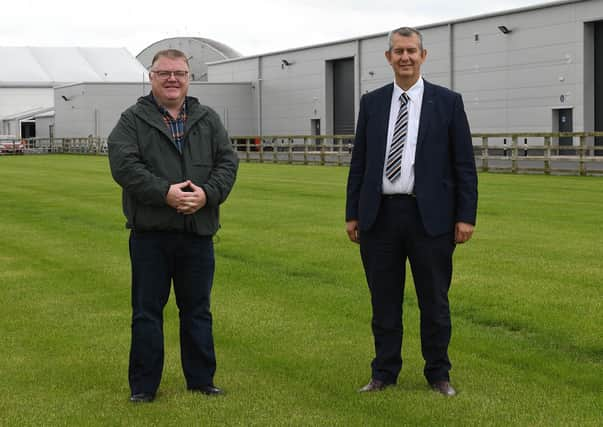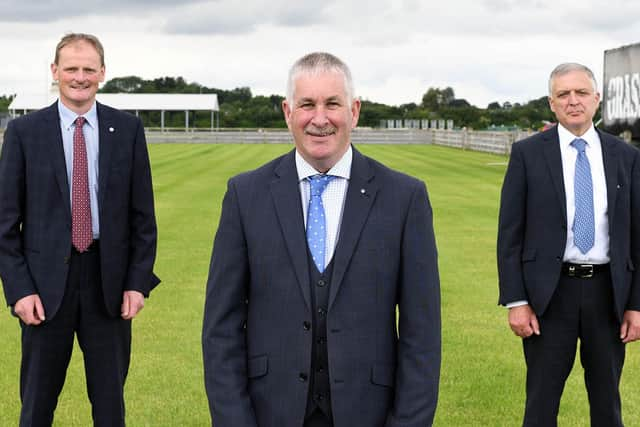UFU announce new leadership team


County Antrim livestock farmer Victor Chestnutt, was voted in as president for two years and David Brown was re-elected as deputy president for a second term. He will be joined by newly elected deputy president William Irvine, from Co. Armagh.
The new president thanked the UFU membership for their ongoing support and dedication to producing high-quality food for the nation, creating 100,000 jobs in Northern Ireland (NI) in the process. He commended the great work of outgoing president Ivor Ferguson and thanked the Department of Agriculture, Environment and Rural Affairs (DAERA) Minister, Edwin Poots MLA and the Chairperson of the Assembly’s Agriculture, Environment and Rural Affairs Committee, Declan McAleer MLA, for their participation in the AGM.
Advertisement
Hide AdAdvertisement
Hide AdSpeaking of the challenges that lay ahead, Mr Chestnutt said: “It is an honour and privilege to lead this organisation during this time and to follow so many leaders who have worked tirelessly for Northern Ireland farmers. I do not underestimate the responsibility and importance of decisions that lie ahead as we face a new dawn with Brexit, a new agriculture policy, climate change, ammonia, north/south protocols, east/west protocols and worldwide trade deals alongside COVID-19. Our members have my wholehearted commitment to leaving no stone unturned in my effort to lead this organisation as the hand of history will look back on this juncture in our amazing agriculture industry.”


Mr Chestnutt addressed the crucial development of a new agriculture policy and environmentally friendly farming.
“The new agriculture policy must support innovation, efficiency and sustainable production, while recognising environmental delivery that each farm business can deliver. It must work towards a time when we can receive a fair return from our products without the need for support.
“We farmers must adapt and embrace new technologies. This means continuing to change the way we farm whether it be by managing our hedges or our farm nutrients differently. We need support for better storage facilities and spreading equipment. Many of our farmyards are tired. Rather than stopping the building of new improved facilities on our farms be it pack houses, grain stores or livestock sheds, we need to update and build modern sheds that will facilitate green growth, while improving the quality of our produce and providing more welfare friendly housing for our livestock with better airflows to reduce antibiotic usage and new designs to reduce emissions.
Advertisement
Hide AdAdvertisement
Hide Ad“In NI we are faced with unnecessary duplication. We have the NI Environmental Agency and Shared Environmental Services (SES). Both are run by the council, are answerable to no one and are doing the same job. I publicly call for the disbandment of SES, this will help our council’s budgets and lead to clarity going forward,” said Mr Chestnutt.
Remembering the North West flood victims of 2017, the new UFU president said: “In a month’s time it will be three years since the devastating floods in the Glenelly and Owenkillew valley and surrounding areas. These small numbers of farmers have been left without any support, simply because there was no Government at the time. I would appeal to our Minister and Agriculture Chair to sort this out, its common sense that these devastated farms should receive the equivalent of the de minimis €15,000 payment, in sterling.”
Concluding his speech Mr Chestnutt recognised the success of the UFU’s first Women in Agriculture conference and of the back of Farm Safety Week 2020, paid tribute to those who lost their life as a result of a farm accident and their bereaving families.
Comment Guidelines
National World encourages reader discussion on our stories. User feedback, insights and back-and-forth exchanges add a rich layer of context to reporting. Please review our Community Guidelines before commenting.